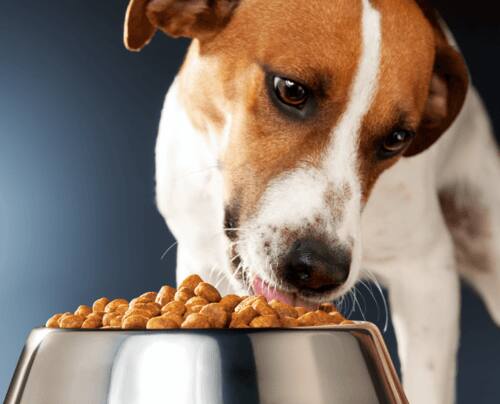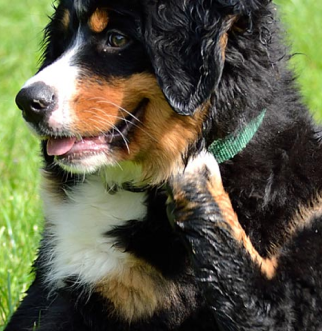

Has your dog been scratching themselves? Does their skin look red? Do they have pimples or an odor to their skin? They could have a condition known as pyoderma— a common skin condition that plagues dogs of all shapes, sizes and ages. If you're concerned that pyoderma could be wreaking havoc on your dog's skin, read on to learn common causes and treatments for the infection. Reach out to your veterinarian to schedule a visit to discuss your concerns.
What Is Pyoderma in Dogs?
Pyoderma is a superficial bacterial infection that affects hair follicles and the surrounding skin. If you break it down, "pyo" means pus, and "derma" means skin. Pyoderma in dogs usually has an underlying cause, such as:
- A foreign body, like grass seed, getting under the skin
- A trauma or bite wound
- An allergy or hypersensitivity to fleas, food or environmental factors
- Mites
- A hormonal disorder, like Cushing's syndrome, hypothyroidism or autoimmune disorders
- Administration of immune-suppressing drugs, like chemotherapy or steroids
- Poor nutrition
What Are the Signs of Pyoderma in Dogs?
Pyoderma can present in a variety of ways. It can be limited to one area, or it may cover your dog's skin. Some areas of the body, such as skin folds, chins, lips, vulvar folds and the skin in between the toes are more likely to be affected. Sometimes pyoderma is extremely itchy, such as in cases of flea allergy dermatitis; other times, it doesn't seem to make a dog itchy at all. Signs of pyoderma to look out for include:
- Red bumps
- Pustules
- Flaking skin
- Hair loss
- Skin discoloration
- Excessive shedding
- Redness
Puppies can get a special kind of pyoderma called puppy pyoderma. Your dog may have puppy pyoderma if you see red bumps in the armpits, groin and/or on the abdomen. These red bumps can scab over and scale. Puppy pyoderma can make your dog slightly itchy, but pups with puppy pyoderma are usually otherwise in good health.
What Is the Treatment of Pyoderma in Dogs?
Veterinarians usually treat pyoderma by resolving the bacterial infection and addressing the underlying cause, if applicable. Pyoderma in dogs is directly treated with antimicrobial therapy — either oral antibiotics or topical antibacterial medication, shampoo or spray applied to the affected area. Pyoderma is usually caused by Staphylococcus bacteria (or Staph). Unless your dog has a drug-resistant species, Staph infections are usually easily cleared up.
If your veterinarian suspects pyoderma, then they will take a sample from the skin and put it under the microscope to look for bacteria and other organisms, such as mites. They may also order a fungal culture or a black light test to rule out ringworm.
The greater challenge with pyoderma in dogs is determining the underlying cause of the infection, which you and your veterinarian will need to work together to figure out. There may be some trial and error involved; your veterinarian may ask to take some blood, skin or urine samples from your dog.

Made for dogs, led by science
We believe that science is the best path to giving your pet the best care possible.
Made for dogs, led by science
We believe that science is the best path to giving your pet the best care possible.
Does Nutrition Play a Role?
Nutrition and your dog's food plays a large role in skin health. For example protein and amino acids are important for hair growth and omega-3 and omega-6 fatty acids are key for coat quality and reducing water loss through the skin.
Dogs with ingredient sensitivities or food allergies may be at risk for developing a pyoderma after eating something that causes a reaction. If your veterinarian suspects a food allergy, they will need to treat the skin infection and then they may recommend feeding your dog a therapeutic food to see if the skin problem abates.
If your dog doesn't have food allergies but has pyoderma secondary to other health concerns, like a hormonal disorder, then it might be a good idea to feed your dog a food that's specially formulated for dogs with sensitive skin. It's crucial to talk to your veterinarian about the ideal food for your dog because it is important to make sure your dog receives the best nutrition possible.
Pyoderma is a pain, but with a little knowledge and care, it can be resolved. If your dog develops pyoderma, especially more than once, understand that you're dealing with an underlying issue that needs resolution. If you notice any of the signs of the infection, call your veterinarian so that you can work together to get your pup back to feeling like their best self.



















